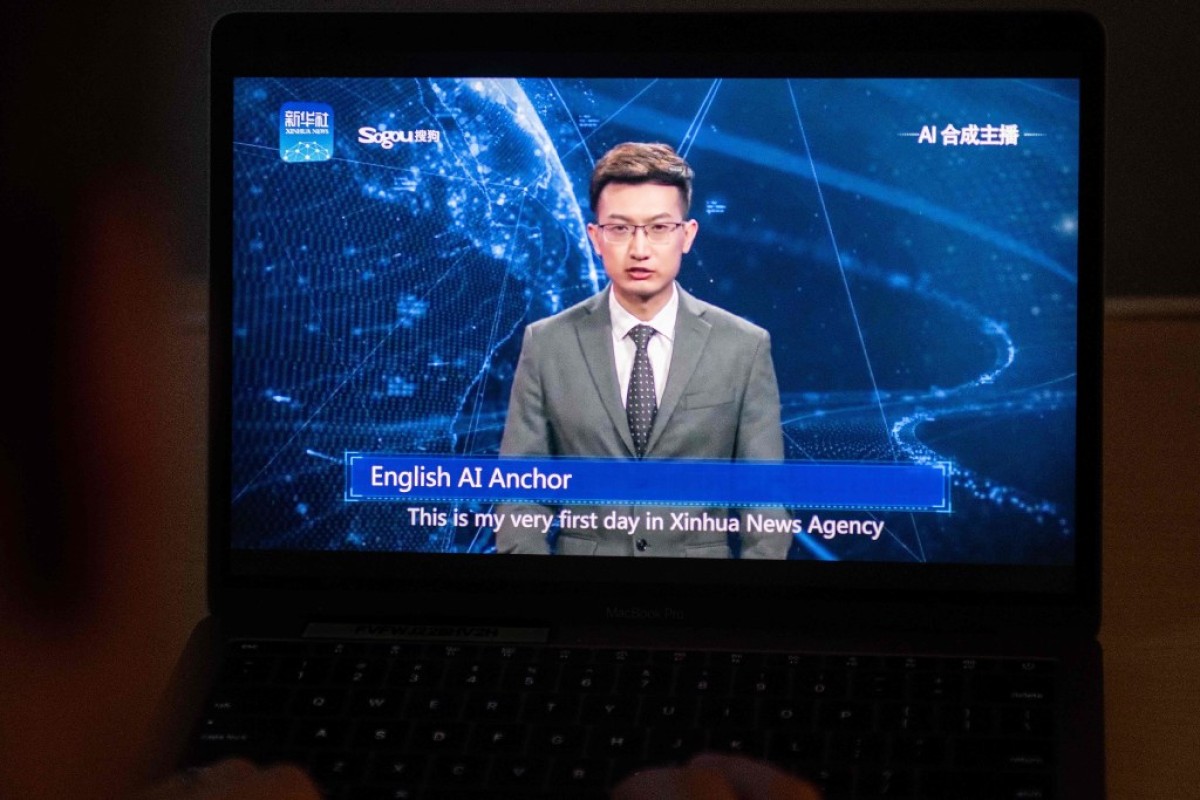 A man watching an AI news anchor from a state-controlled news broadcaster, on his computer in Beijing.
A man watching an AI news anchor from a state-controlled news broadcaster, on his computer in Beijing.Emily Li, 15, Renaissance College
Of course! Although it sounds pretty cool, such a move would be heavily criticised. This is because a lot of people have the wrong idea about artificial intelligence (AI).
To those whose exposure to AI is limited to cheesy action movies and TV shows, they might think that robots are “evil” or “scary”, or even worse: that they are capable of taking over the world. But I think using robots as news anchors is sensible and harmless, and will cut costs and improve efficiency. With automated news anchors, we would be able to receive news really fast: someone could just type the copy into the system, keeping the public well-informed at all times.
Also, unlike humans, robots can work 24 hours a day. They can be created to look and act like humans, and cover stories anywhere, anytime.
Can food be grown on Mars? Nasa is working with Dutch researchers to find out
Critics will say this will lead to many people losing their jobs. Many years ago, when factories were set up, individual craftsmen were put out of business. Now the same thing is happening with technology. We live in amazing times – we have driverless cars and drones delivering packages. And robots are a big thing now. Nobody can stop human progress. In fact, new technology can inspire humans to reach levels that they could be proud of.
Perhaps the growth of the AI labour force will change the way the job market functions. Humans will have to be inventive to keep up with the challenges posed by robots. In a way, this makes sense. We should embrace AI and work with robots to ensure a prosperous future. Meanwhile, some real-life news anchors may take up jobs they never thought they would – like being a business executive or chef.
Nicholas Ng, 16, South Island School
We live in a world where AI has increasingly come under fire for its failure to replace humans in more meaningful tasks. Therefore, I believe that robots cannot, should not, and will not replace human news anchors.
First of all, AI anchors may wear suits but they will never have the voice, facial expressions and actions of a real person. For example, China’s Xinhua News Agency recently unveiled what it called the world’s first English news anchors powered by artificial intelligence. Their performance is very boring compared to the way humans present news.
According to UCLA psychology professor Albert Mehrabian, 38 per cent of communication is based on voice and tone, something that AI fails to achieve. As such, it’s easy to see how robots could harm the very purpose of having news anchors – getting viewers interested in what’s happening in their country and around the world.
Another problem is that AI news anchors would present disturbing stories, for example, about genocide or murder, with a complete lack of emotion that would shock the viewers. Also, real journalists have good decision-making skills and can react quickly to any situation. Robots simply can’t. For the broadcaster, all these facts are bad news – they will lose viewers and advertisers.
In addition, AI anchors could be controlled by outside forces. Xinhua’s news anchors are widely seen as the Communist Party’s mouthpiece. It would be much easier to use robots to “feed” the people what the government wants them to hear. Then the officials would be free to report – and do – what they want. Yet, with the emotional element provided by real, human journalists and news anchors, there is very little chance for abuse.
So it’s a definite “no” to AI news anchors.

